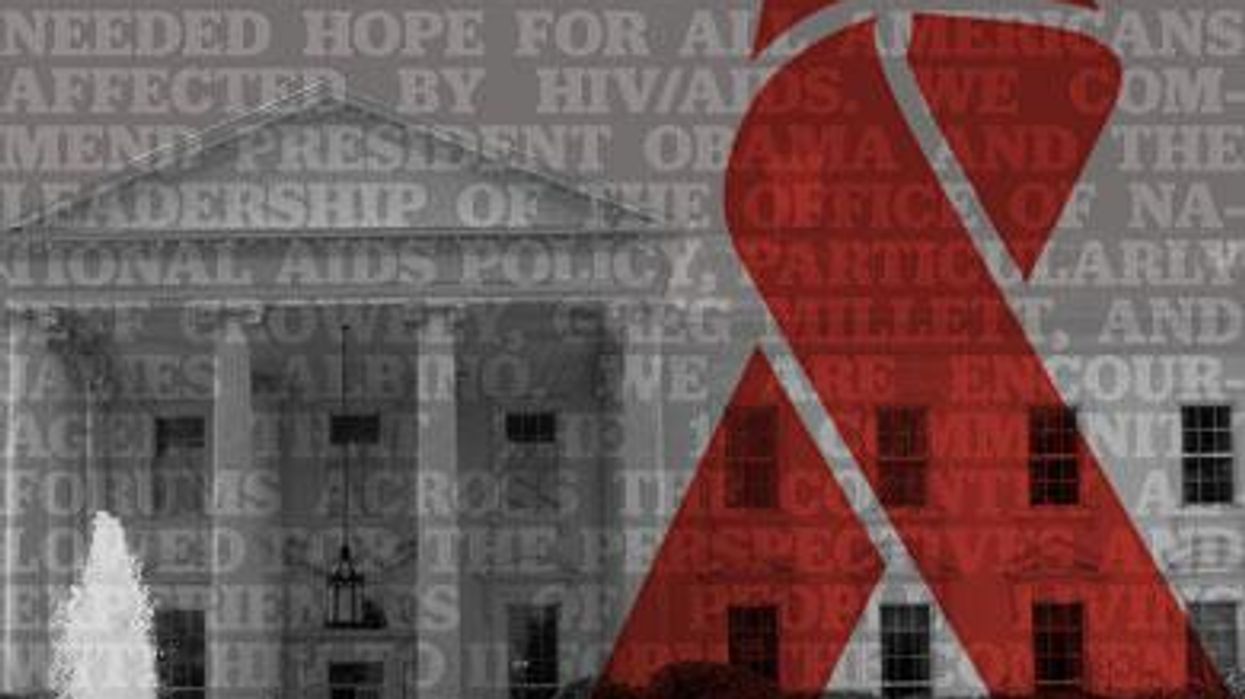
July 14 2010 4:55 PM EST
By continuing to use our site, you agree to our Privacy Policy and Terms of Use.

After a year and a half of research the White House on Tuesday released
its national strategy for tackling HIV. The plan calls for a 25%
infection reduction over the next five years as well as using a $30
million cash infusion -- redirected from the Affordable Care Act -- to focus
on prevention and targeted testing. Many AIDS organizations heralded the
strategy, while others were skeptical. Here's what groups are saying:
"Today's
release of the strategy is an important milestone that we should all
celebrate. However, it's critical to acknowledge that is just the
beginning. Advocates must stay engaged in the weeks, months, and years
ahead to ensure this plan gets fully implemented."
--David Ernesto
Munar, AIDS Foundation Chicago vice president
"We are pleased with the direction the Obama administration is pursuing in its national strategy on fighting HIV and AIDS. We have called for an informed and robust dialogue around the truths about HIV and AIDS, including discussions about safe sex, prevention, public education, and living with HIV/AIDS, among other things. That this is happening at the highest level of government sets the tone for significantly reducing the impact of HIV and AIDS in the black community and beyond."
--Sharon J. Lettman, National Black Justice Coalition executive director
"The news of the National HIV/AIDS Strategy brings much needed hope for all Americans affected by HIV/AIDS. We commend President Obama and the leadership of the Office of National AIDS Policy, particularly Jeff Crowley, Greg Millett, and James Albino. We are encouraged that the 14 community forums across the country allowed for the perspectives and experiences of people living with HIV to inform the content, and ultimately the success, of the strategy."
--Marjorie Hill, Gay Men's Health Crisis chief executive
"The president has shown leadership, and for that we commend him. Now, his leadership must continue because the nation's ability to achieve or exceed the goals articulated in this strategy will require a serious focus by appropriate branches of government and a significant increase in federal resources."
--Darrel Cummings, L.A. Gay & Lesbian Center chief of staff
"By underfunding prevention, care, and
treatment programs -- and by basing public health decision-making on
ideology versus science -- the U.S. government has in the past failed to
embrace its own standard for countries of the global South to adopt
sound, evidence-based national HIV/AIDS strategies. That is what makes
today's announcement of a National HIV/AIDS Strategy...so pivotal to
stemming a tide of human devastation and unnecessary death in the United
States."
--Jose M. Zuniga, International Association of Physicians in
AIDS Care president
"We must look at
this plan as a solid first step in achieving our ultimate goal:
eradicating HIV/AIDS. Now the conversation must turn to
implementation -- and how we fund such an audacious goal. To ignore the
difficult topic of HIV/AIDS funding would be tantamount to placing the president's strategy in a shredder."
--Paul Kawata, National Minority
AIDS Council executive director
"Following
three years of advocacy efforts by San Francisco AIDS Foundation and
others on the development of the National HIV/AIDS Strategy, we must
turn our attention to its funding and implementation, which will be
equally challenging."
--Barbara Kimport, San Francisco AIDS Foundation
interim chief executive
"The AIDS Institute
looks forward to working with the Obama administration and the U.S
Congress, together with the private and public sectors at all levels, as
the Administration turns to implementing the strategy and brings the
domestic AIDS epidemic back to the forefront."
--Michael Ruppal, The
AIDS Institute executive director
"It
is profound that strategies to reduce mother-to-child transmission of
HIV were not required in the National AIDS Strategy due to the sustained
dramatic reduction of infant HIV. This is one of the real successes of
HIV prevention in the U.S, considering nearly 2,000 babies were born
with HIV infection each year in the 1990s and now less than 100 per year
over the past few years."
--Carole Treston, AIDS Alliance for
Children, Youth & Families executive director
Charlie Kirk DID say stoning gay people was the 'perfect law' — and these other heinous quotes